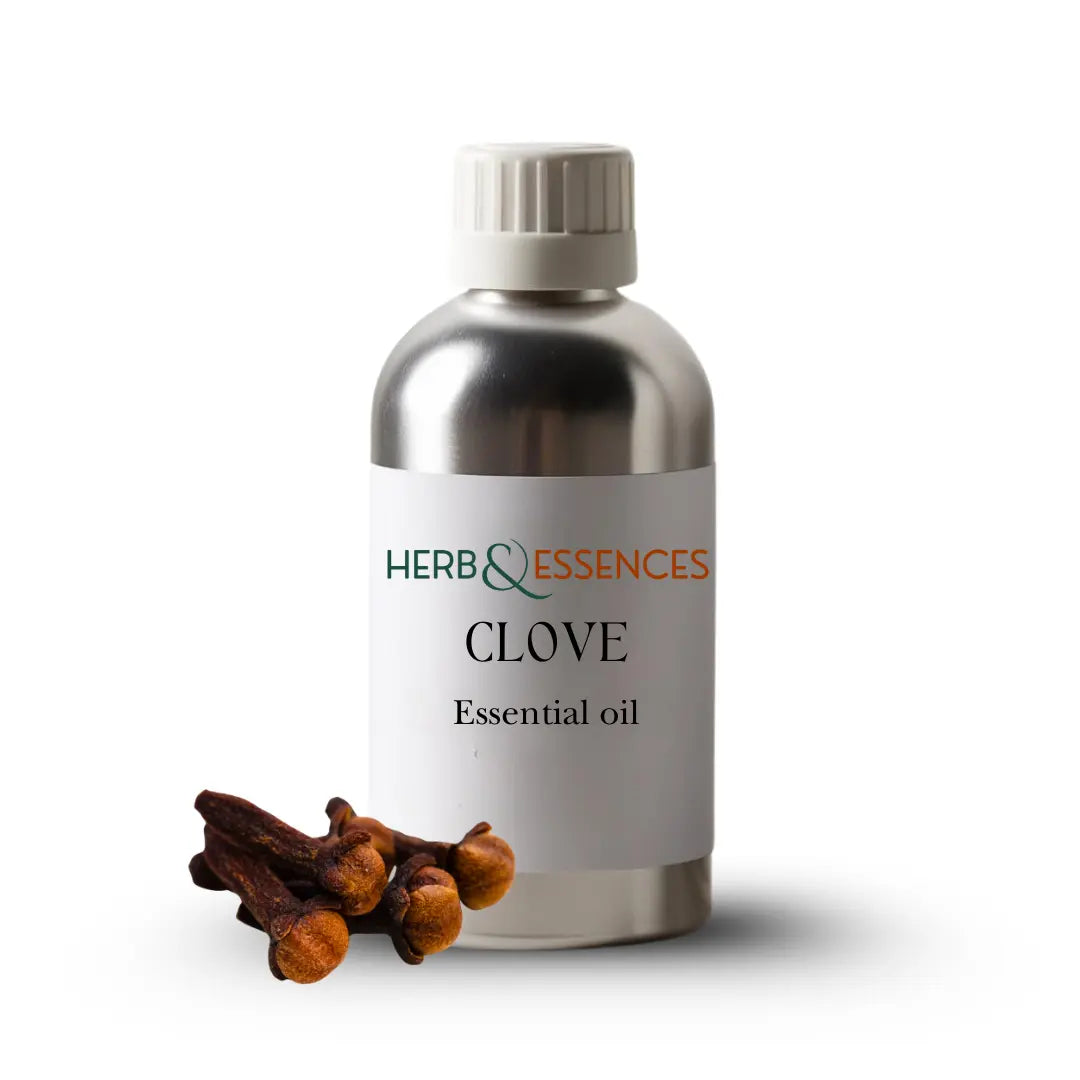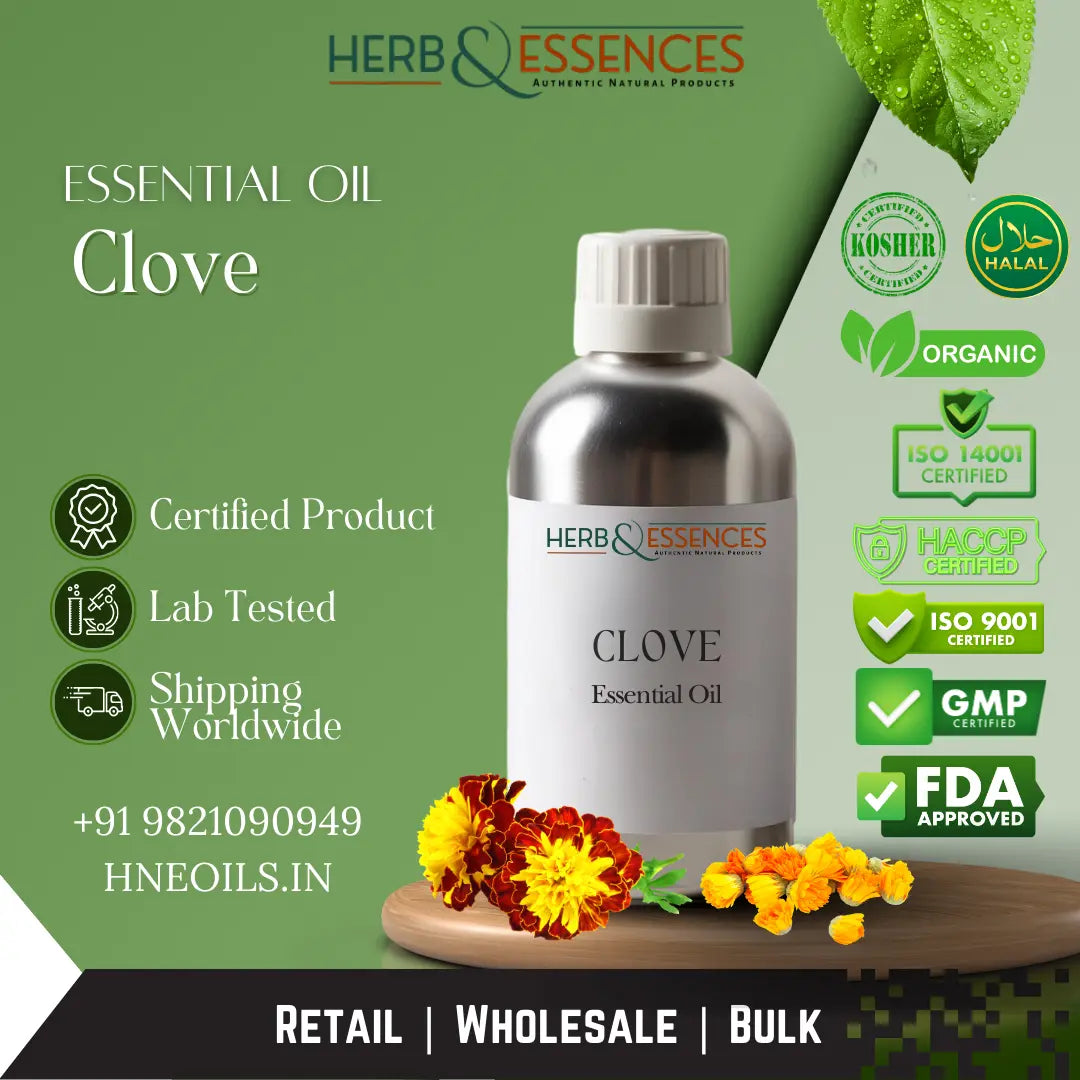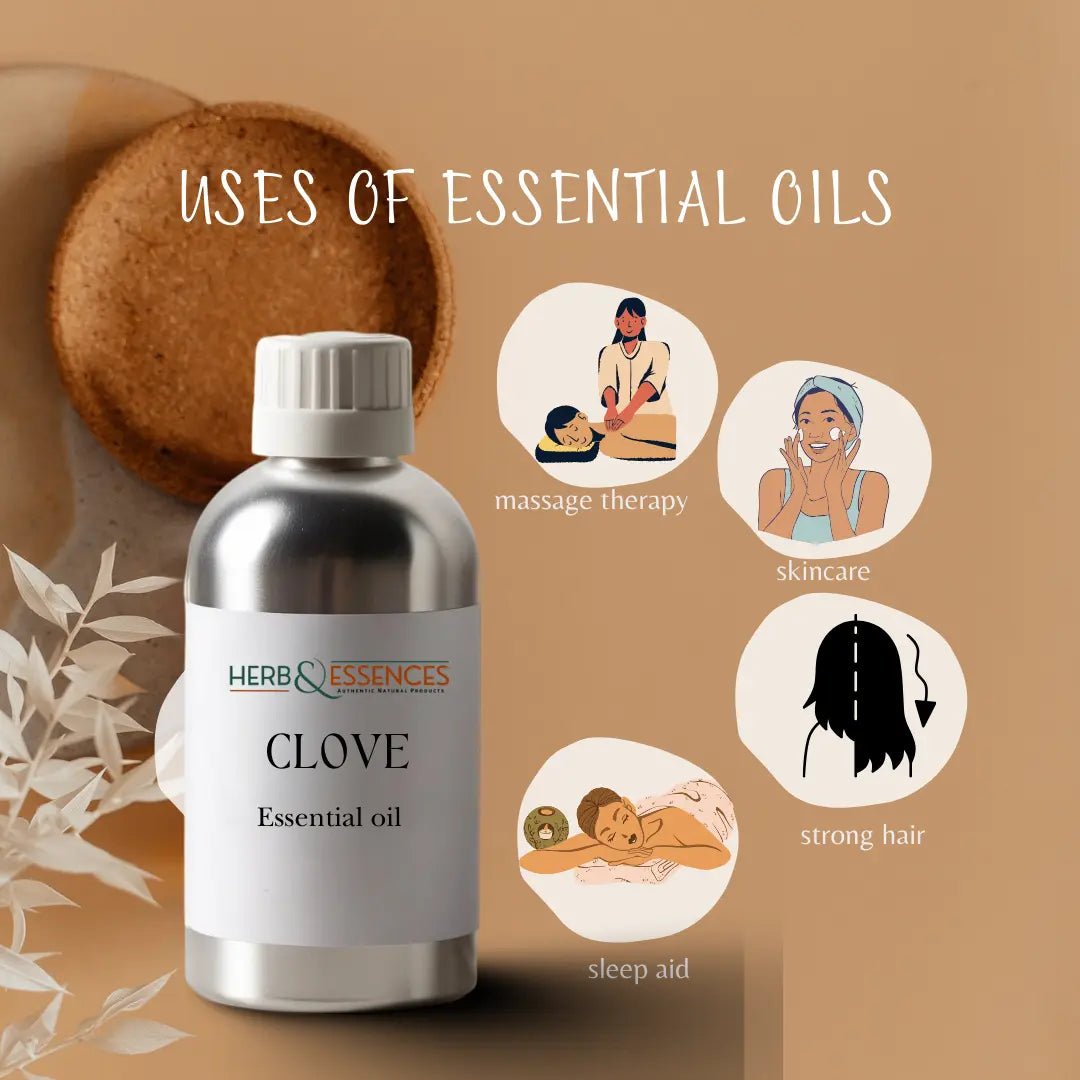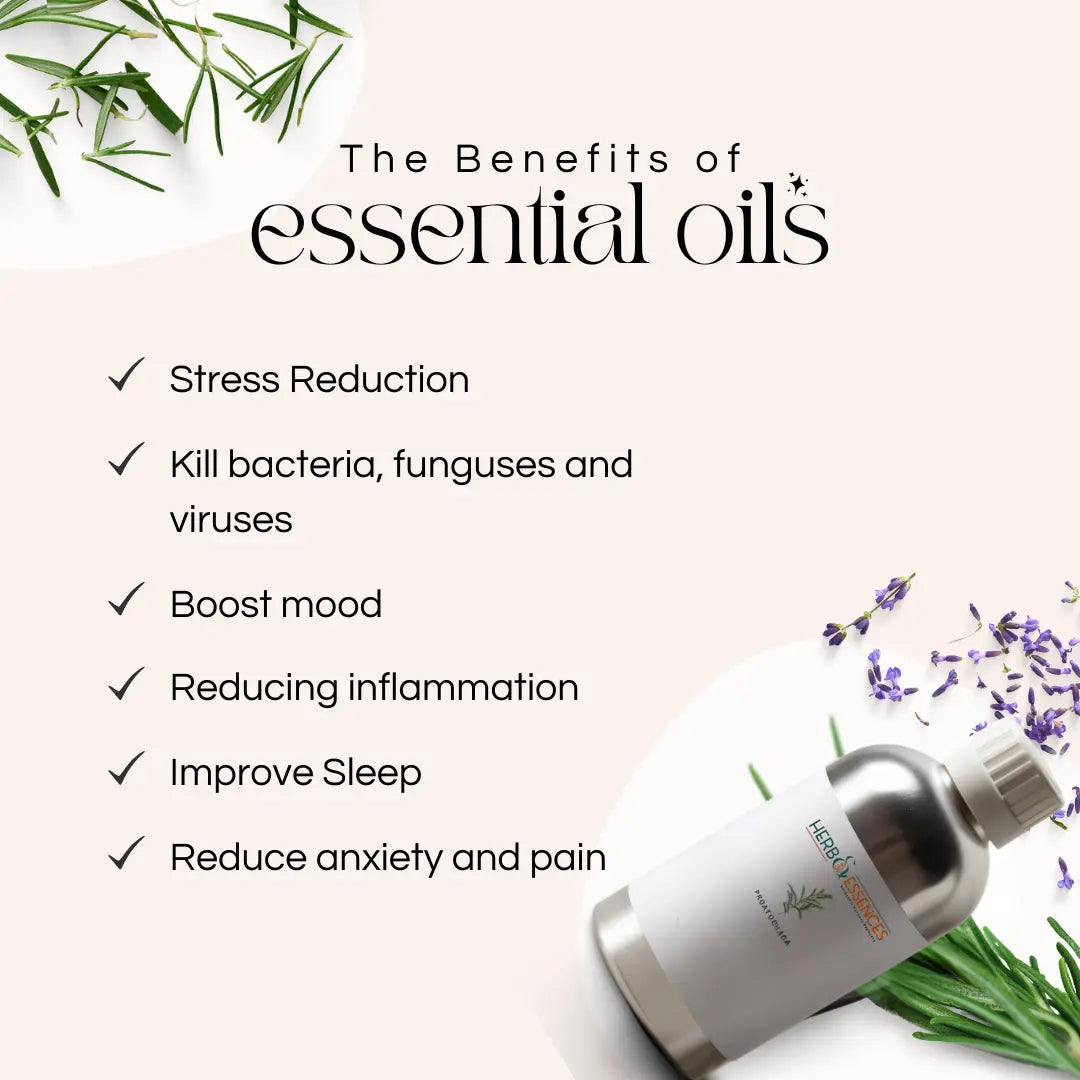Clove Essential Oil
Clove Essential Oil
Couldn't load pickup availability
Share
Clove Essential Oil
Botanical Information
Clove essential oil is derived from the flower buds, leaves, or stems of Syzygium aromaticum, an evergreen tree in the Myrtaceae family. Renowned for its spicy, warm, and slightly sweet aroma, clove oil has been used for centuries in traditional medicine, culinary applications, and aromatherapy. Its high eugenol content gives it powerful therapeutic properties, making it a staple in holistic health practices.
Origin and Source
Clove trees are native to the Maluku Islands (Spice Islands) in Indonesia and are widely cultivated in countries like Madagascar, Sri Lanka, and Tanzania. The essential oil is obtained from sustainably harvested clove buds, leaves, or stems to ensure high-quality production while preserving natural ecosystems.
Extraction Method
Clove essential oil is primarily extracted using steam distillation:
· Clove Bud Oil: Extracted from dried flower buds and considered the most aromatic and potent.
· Clove Leaf Oil: Distilled from the leaves, often used for industrial or therapeutic purposes.
· Clove Stem Oil: Derived from the stems, possessing a strong but slightly less refined aroma compared to bud oil.
Physical Properties
· Appearance: Clear to pale yellow liquid with a smooth consistency.
· Aroma: Warm, spicy, and slightly sweet with woody undertones.
· Viscosity: Medium, ideal for blending with carrier oils or other essential oils.
· Solubility: Insoluble in water; soluble in carrier oils and alcohol.
Technical Specification
· Specific Gravity: 1.030–1.060.
· Refractive Index: 1.530–1.540.
· Flashpoint: Approximately 80°C.
Uses and Applications
· Aromatherapy: Provides energizing and warming effects, helps uplift mood and reduce mental fatigue.
· Dental Care: Incorporated into toothpastes and mouthwashes for its antibacterial properties and numbing effects.
· Skincare: Used in diluted formulations to address acne and purify the skin.
· Massage Therapy: Blended with carrier oils for warming massages to ease muscle aches and joint stiffness.
· Natural Remedies: Traditionally used to relieve respiratory issues and digestive discomfort.
· Perfumery: Acts as a middle or base note, adding depth and spice to fragrances.
· Home Care: Added to cleaning products for its antimicrobial properties and warm scent.
Benefits and Properties
· Antimicrobial: Helps fight bacteria, fungi, and viruses, making it ideal for natural cleansing applications.
· Analgesic: Provides pain relief, especially for toothaches and sore muscles.
· Immune-boosting: Supports general wellness by enhancing immune function.
· Mood-enhancing: Creates an invigorating and comforting atmosphere when diffused.
· Anti-inflammatory: Reduces swelling and inflammation in topical applications.
Safety Information
· Dilution: Always dilute clove essential oil with a carrier oil before applying directly to the skin, as it is highly potent and may cause irritation.
· Patch Test: Test a small area of skin to check for sensitivities or allergic reactions.
· Avoid Contact: Keep away from sensitive areas like the eyes, nose, and open wounds.
· Medical Precautions: Consult a healthcare professional if pregnant, breastfeeding, or undergoing medical treatment. Avoid excessive use, as high concentrations may cause adverse reactions.
· Keep Away: Store safely out of reach of children and pets.
Storage and Shelf Life
· Storage: Store in a cool, dry place away from direct sunlight, heat, and moisture. Use amber or cobalt blue glass bottles to protect the oil’s aromatic and therapeutic properties.
· Shelf Life: Typically lasts 2–3 years under optimal storage conditions.
Packaging and Handling
· Packaging: Glass bottles are ideal for small quantities, while HDPE containers are suitable for bulk storage.
· Sealing: Ensure containers are tightly sealed to prevent evaporation and contamination.
· Handling: Use sterilized tools during transfer or application to maintain purity.
Sustainability and Ethics
· Eco-conscious Practices: Produced using sustainable farming and harvesting methods to protect clove trees and their ecosystems.
· Cruelty-free: Not tested on animals, adhering to ethical manufacturing standards.
· Vegan-friendly: Contains no animal-derived components, making it suitable for environmentally conscious consumers.
· Fair Trade: Often sourced through programs that support local farmers and promote equitable livelihoods.








